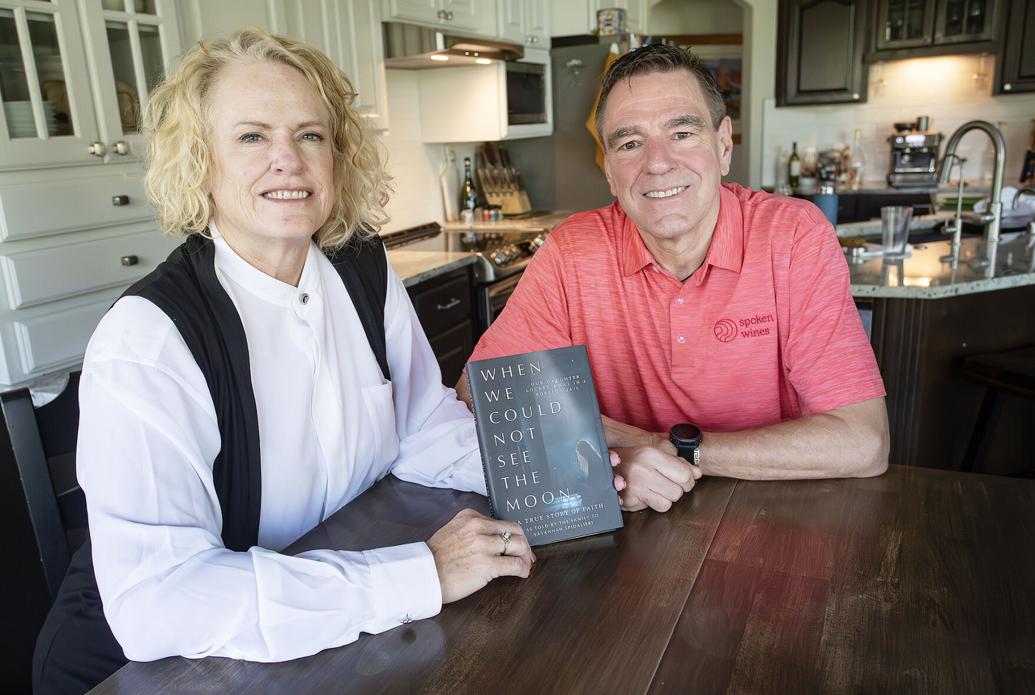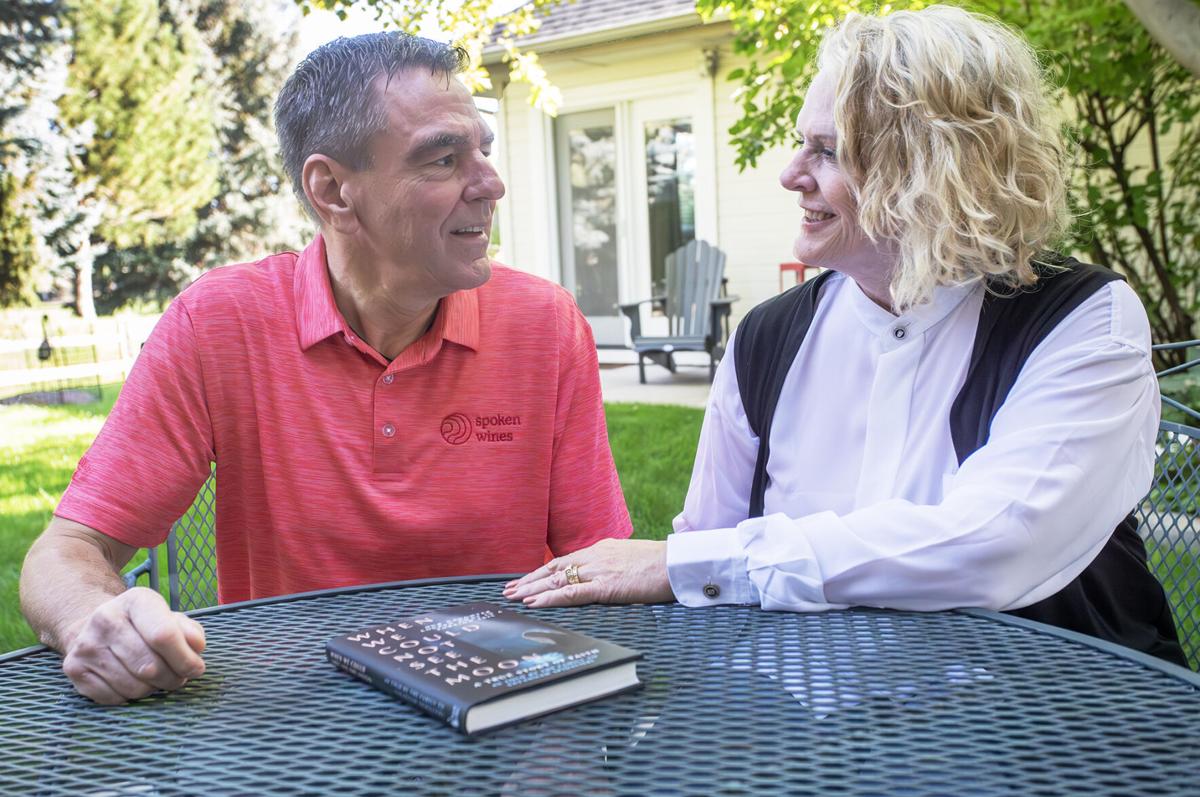New book documents Tammy and Jan de Weerd’s quest to free their daughter from an Egyptian jail

By Kelly Holm kholm@idahopress.com Sep 26, 2024
MERIDIAN — She went to Egypt with ambitions of seeing the Red Sea’s coral reefs. But soon, she found herself needing her own Moses to rescue her from captivity.
Such was the plight of Meridian de Weerd family’s eldest daughter — called Hanna in the new book, “When We Could Not See the Moon.” She had set off in February 2021 for a planned year in the North African nation.
A digital nomad, she could (and did) complete her work in marketing and web analytics with a WiFi connection from anywhere in the world. Having visited Egypt before with a former boyfriend who was from the country, she yearned to go back for a longer stay, when she could scuba dive in the Red Sea and visit its endangered coral reefs.
This time, though, she didn’t even make it past customs, due to some vitamins and pancake mix.
“She had a year to a year-and-a-half’s supply of supplements. When you travel, you put your supplements in baggies, and that’s what we did here at home before she first went,” said Tammy de Weerd, Hanna’s mother and Meridian’s mayor from 2004-2020. “The number of capsules she had in her suitcase caught their attention, in addition to the pancake mix. It was all out of her view, so she didn’t know what was going on. She thought she was the lucky winner of the random draw for a random search.”
Instead, Hanna was detained on suspicion of drug trafficking.
What followed was a lengthy ordeal for the de Weerds to prove Hanna’s innocence and get her released from a squalid Egyptian jail. Their efforts, and Hanna’s experiences on the inside, are chronicled in “When We Could Not See the Moon: A True Story of Faith,” as told to ghostwriter Savannah Spidalieri.
“[For the first] four or five days, we didn’t know if she was OK. We didn’t know if she was hurt, we didn’t know if she had been violated,” said Hanna’s father, Jan de Weerd. “As a matter of fact, we don’t want to talk about that — but we didn’t know if she was alive.”
All they had to go on were a few texts Hanna had sent to friends and her younger sister, Taylor, before her phone was confiscated: If you don’t hear from me in a day or two, tell my parents what happened.
A friend-of-a-friend-of-a-friend of Tammy’s was able to confirm with the Egyptian embassy that, yes, an American woman was being held in their custody. Tammy Googled conditions in Egyptian jails, and was horrified to learn that Hanna would be in a 12-by-12-foot cell with up to 20 other detainees.
There was only a hole in the corner for a bathroom, and a single lightbulb that remained on 24 hours a day. Hanna learned to tell time from the call to prayer, five times daily.
Meanwhile, Taylor and Hanna’s friends in the Netherlands — Jan de Weerd’s native country, where Hanna and Taylor have dual citizenship — pooled funds with Hanna’s Egyptian ex-boyfriend to hire an attorney. Jan and Tammy worked around the clock to expedite the lab test results on the substances in time for Hanna’s planned court date. And Tammy began the arduous task of identifying each supplement with its manufacturer, based off of a grainy photo in an Egyptian tabloid story about the suspected “American smuggler.”

“The book is written day by day from our perspective,” said Jan, “and then it flips to what happened that exact same day from Hanna’s perspective.”
To protect the privacy of those involved and to give the family space in their healing, all names in “When We Could Not See the Moon” have been changed, except for Hanna’s cat. Jan and Tammy de Weerd became Jon and Tracy Willems, and though they’re promoting the book under their real names, they continue to publicly refer to their daughter as Hanna.
The couple said they wanted to publish their story to demonstrate the power of faith in their lives and to encourage those facing similarly difficult situations. Spidalieri, the director of publishing at Ballast Books, had initially written just a project summary for prospective writers, but she and the de Weerds quickly realized she was the perfect ghostwriter to bring the family’s voices to life.
“When we first started talking about their project, that really resonated with me as a mom. I can’t imagine my daughter being in that same situation,” Spidalieri said. “After working with Jan and Tammy for so long, they feel like family, and that’s another reason this book is so close to my heart.”
Today, Taylor and Hanna both still live abroad. Hanna is reluctant to speak about what she went through, with her parents only learning the full extent of it upon reading draft chapters that Spidalieri constructed from her diaries.
Net proceeds for the book, as per Hanna’s wish, will be donated to provide food and legal counsel to women in Egyptian pretrial detention.
“Not everyone has family,” Tammy said. “Hanna really had a community that could step up and fight for her. … She felt guilt, because she had so much more than these women she was incarcerated with had, and she wanted to be able to repay them.”
“When We Could Not See the Moon” was released Tuesday, Sept. 24. Book signings will be held at Barnes & Noble in Boise from 11 a.m. to 1 p.m. on Saturday, Sept. 28, and at Hells Canyon Winery in Caldwell from noon to 2 p.m. on Saturday, Oct. 12.
Copyright © 2024 When We Could Not See The Moon | All Rights Reserved | Privacy Policy


